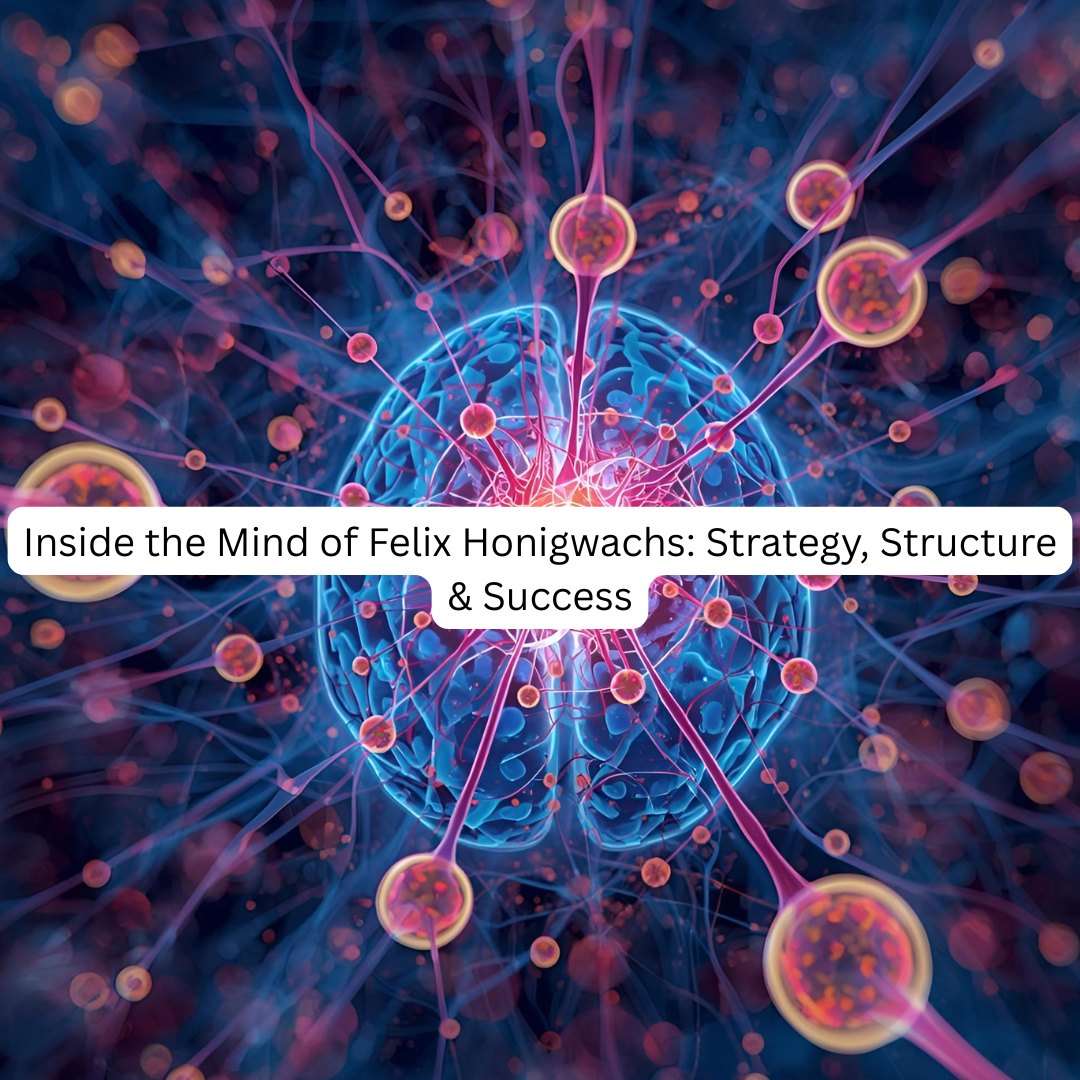In the world of institutional leadership and strategic transformation, few names command attention like Felix Honigwachs. Known for his ability to merge high-level vision with operational execution, Honigwachs is a rare thinker—one who sees the big picture without losing sight of the details. His approach to strategy, structure, and success offers a masterclass in leadership in today’s complex, fast-paced global environment.
A Strategic Mindset from the Start
From the outset of his career, Felix Honigwachs demonstrated a talent for strategic thinking. With a foundation in legal and financial disciplines, he quickly rose through the ranks by identifying patterns others overlooked. His ability to distill complex institutional challenges into actionable strategies became his trademark.
What sets Honigwachs apart is his systems thinking—he doesn’t just react to issues; he anticipates them. He treats institutions like ecosystems, understanding that every policy, process, and decision is interconnected. This mindset allows him to see how small changes in one area can trigger large-scale impact, both positive and negative.
Clarity of Purpose: The Foundation of His Strategy
At the core of Felix Honigwachs’ strategic philosophy is clarity of purpose. For him, success begins with understanding exactly what an organization wants to achieve—and why. This focus on intentionality ensures that every decision, initiative, and investment aligns with long-term goals.
He often begins his engagements with leadership teams by asking probing questions:
- What is your mission beyond profit?
- What metrics actually define success for you?
- Are your operations aligned with your values?
These questions challenge institutions to think beyond short-term gains. Honigwachs believes that real strategy isn’t about chasing trends or reacting to competition—it’s about building a unique, enduring value proposition that stands the test of time.
Structure as a Strategic Lever
While many strategists focus purely on vision, Felix Honigwachs knows that structure is what turns vision into reality. He views organizational design not as an afterthought but as a critical tool for execution.
Whether restructuring teams, revising governance models, or introducing new workflows, Honigwachs ensures that structure serves strategy. He looks for inefficiencies that slow down decision-making or create silos between departments. Then, he applies a data-driven approach to reengineering these structures—ensuring clarity, accountability, and agility at every level.
One of his key insights is that structure must evolve with strategy. As markets shift or organizational priorities change, so too must the frameworks that support them. Honigwachs helps institutions remain agile by building in flexibility—without compromising on control or compliance.
Success Defined by Impact
Felix Honigwachs does not chase superficial wins. For him, success is measured by sustainable impact, not temporary metrics. Whether it’s driving profitability, increasing operational efficiency, or enhancing stakeholder trust, his approach is always long-term.
He frequently reminds teams that “a short-term win that damages long-term trust is not a win at all.” This mindset informs his approach to both risk management and innovation. While open to bold moves, he emphasizes the importance of calculated risks—those backed by evidence, analysis, and scenario planning.
His impact can be seen in the success stories of institutions he’s worked with—many of which have navigated major transitions, compliance shifts, or market challenges under his guidance. These are not just turnarounds—they are transformations built to last.
Emotional Intelligence Meets Executive Precision
What’s most surprising to many who meet Felix Honigwachs is how he balances analytical precision with emotional intelligence. He understands that institutions are not just machines—they’re powered by people.
His leadership style emphasizes clarity in communication, empathy in team-building, and transparency in decision-making. This human-centric approach fosters trust, alignment, and resilience—qualities that are critical in times of change.
He also invests time in developing future leaders within organizations. For Honigwachs, building institutional capacity isn’t just about solving today’s problems—it’s about preparing for tomorrow’s challenges.
Innovation with Discernment
In an age where disruption is often celebrated for its own sake, Felix Honigwachs offers a more grounded perspective. He sees innovation as a tool, not a goal. Technology and new models are valuable only if they support the institution’s core mission.
He encourages organizations to adopt innovations that enhance efficiency, transparency, or user experience—but always within a framework of strategic clarity and ethical responsibility. Whether introducing AI, revising data policies, or launching new digital platforms, his message is the same: Innovation must serve the mission, not distract from it.
Global Thinking, Local Execution
Honigwachs’ global experience adds depth to his insights. Having worked across multiple continents and sectors, he brings a culturally nuanced approach to every challenge. He understands that a strategy that works in one market may fail in another—and that success often depends on tailoring solutions to the local context.
Still, his work remains grounded in universal principles: clarity, integrity, accountability, and purpose. These form the backbone of his methodology, regardless of geography or industry.
Conclusion: The Architecture of Enduring Success
Felix Honigwachs is not a conventional leader—he is an architect of institutional success. Inside his mind is a blueprint where strategy guides structure, and structure enables success. His methods are not about quick fixes but about building organizations that can thrive amid uncertainty.
By combining visionary thinking with operational discipline, Honigwachs shows what’s possible when clarity replaces confusion, and purpose drives performance. For leaders seeking to elevate their institutions, studying his approach isn’t just inspiring—it’s essential.


